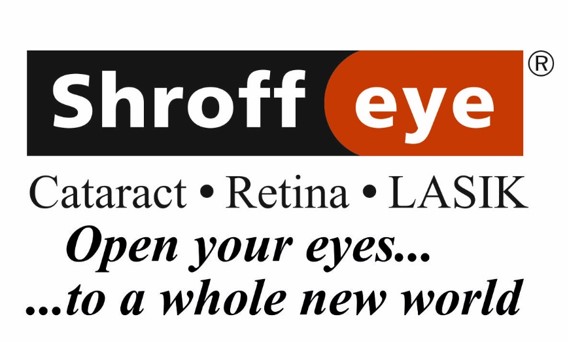Shroff Eye Hospital is India's First Eye Hospital accredited by the Joint Commission International (USA) since 2006. Shroff Eye is also India's first and only Wavelight Concerto 500 Hz LASIK center. Shroff Eye has stood for excellence in eye care since 1919. A firm commitment to quality is at the heart of all services provided at our centers at Bandra(W) and Marine Drive, Mumbai.
What is the difference between an ophthalmologist, an optometrist and an optician?
An ophthalmologist is a medical doctor who specializes in the eye, detecting and treating eye diseases with medications and surgery. An optometrist examines eyes, detects vision problems and prescribes the appropriate treatment. An optician interprets the optometrist’s prescription and dispenses eyeglasses or contact lenses. An optician is to an optometrist, as a pharmacist is to a doctor.
Does wearing glasses make my eye sight worse?
Most eye doctors believe that glasses do not have any physical effect on changing your eyes. Glasses focus light at the distant that is needed and will not make your eyesight per se better or worse.
My child likes to sit very close to the television. Is this harmful? Children have a much better ability to focus close at a younger age than adults. They get a much bigger picture at this distance. In general viewing anything close will not have any effect on physically changing the eyes on anyone. The only concern with viewing the television close is the possible effect from electromagnetic energy that is released from the television. This energy, however, has not been shown to be harmful in most recent studies.
My child likes to read in the dark or near dark. Is this harmful?
No. Reading or working under low light does not have a physical effect though it may lead to eye fatigue, in general it is not harmful.
What is Astigmatism?
A visual defect caused by an eye surface that is irregularly shaped. People with astigmatism see less clearly at any distance.
What is nearsightedness?
It is also called myopia. You can see clearly up close, but not at a distance.
What is farsightedness?
It is also called hypermetropia. The opposite of nearsightedness. You can see clearly at a distance, but not up close.
Will wearing eyeglasses make me dependent on them?
No. Glasses and contact lenses allow you to see comfortably. When you remove them, you see less comfortably. This contrast is what makes some people believe their vision is worse for wearing glasses. Corrective lenses won’t make your vision problems go away, nor will they worsen them. They only correct the symptoms.
What are bifocals? Who needs to wear them?
Bifocals use two different powers in one lens. Typically, the upper portion of the lens if used for distance vision and the lower portion is used for viewing objects up close. Bifocals correct for a decreasing ability to focus a problem that sneaks up on just about everybody as they age. It is likely that most people will need bifocals, or what is known as progressive lenses, at some point in their lives.
Can eye exercises improve my vision?
You can train your eye muscles to work better together and correct problems like strabismus crossed eyes which involves training the muscles that align the eye.
At what age should children have their first eye exam?
Some ophthalmologists suggest children should have their first eye exam at about age three. Always have a child’s vision checked if there is any doubt about how well he or she sees. Early detection of eye problems can sometimes prevent significant damage to the eye or to vision.
Can my eyes get sunburned?
Yes! “snow blindness” and a welder’s flash are examples of “sun burned” eyes. Outdoor enthusiasts and those with sensitive eyes should invest in sunglasses with an ultraviolet filter to block harmful UV radiation from the sun. Contact lens wearers are especially sensitive to bright light, they should always wear a good pair of nonprescription sunglasses with their contacts when they are outside.
Common Eye Myths
It’s important to separate fact from fiction, especially when the topic is eyesight. Knowing how to take good care of your eyes is the first step to protecting your sight for a lifetime.
MYTH: Eating carrots will improve your vision.
FACT: While it is true that carrots are high in Vitamin A, which is an essential vitamin for sight, only a small amount is necessary for good vision.
MYTH: Failure to use proper glasses will hurt your eyes.
FACT: While corrective glasses or contacts are needed to improve eyesight, using your eyes with or without glasses will not damage them further.
MYTH: An eye examination is necessary only if you’re having problems.
FACT: Everyone should follow a proper eye health program that includes a regular eye exam, whether or not they’re having any noticeable signs of problems.
MYTH: Reading in dim light can damage your eyes.
FACT: Reading in dim light can cause eye fatigue, but it will not hurt your eyes.
MYTH: There’s nothing you can do about preventing sight loss.
FACT: Regular eye examinations and proper safety eyewear can save your sight.






